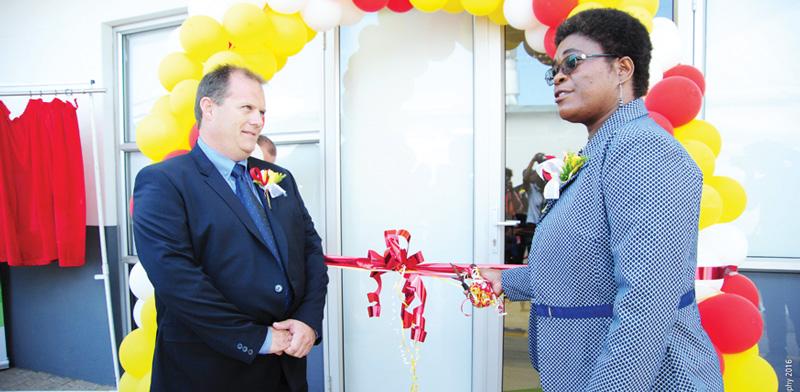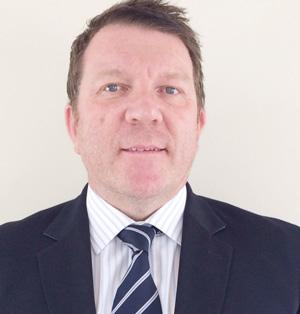
Hakainde Hichilema sworn in as Zambian President

By Clarkson Mambo.
“We choose not to call it transfer of power…” but “transfer of leadership…”
His Excellency Hakainde Hichilema said this during his inauguration ceremony as the new President of Zambia where he extended an olive branch to outgoing President Edgar Lungu and opposition parties, and rallied the nation to come together and focus on improving socio-economic development.
“Fellow Zambians, our focus over the next five years will be on restoring macro-economic stability and promoting growth of the economy because we know what this brings,” President Hichilema told a cheering crowd who filled the National Heroes Stadium to witness his inauguration as the seventh President of Zambia on 24 August.
“We must put aside our election related and other differences and pull in one direction as a country. We have a lot more things that unite us than those that divide us. We must devote our energies to contribute meaningfully to our national development.’
President Hichilema, who described himself as a “simple village boy’, said “economic diplomacy” will be his governments key focus in its dealings with neighboring countries, the region, continent and international community.
“We do not take this responsibility lightly, we will be your servants and you will truly be our masters,” he said, adding that the new administration will aim to ” grow our economy so that we lift more people out of poverty than ever before.”
According to the Southern African Development Community (SADC) economic report for 2020, Zambia’s economy contracted by three percent compared to a growth of 1.4% in 2019.
A gradual recovery is expected in 2021, with Gross Domestic Product (GDP) growth projected at one percent due to improvements in mining, tourism, and manufacturing sectors.
President Hichilema said that addressing unemployment, lack of capital for entrepreneurs, and substance abuse among the youth, will also remain a priority for the new government.
“We will undertake an ambitious economic and social transformation agenda to move Zambia forward, create equitable opportunities for all our people, and reduce poverty. We will aggressively promote the creation of jobs and opportunities that will create wealth, especially for our youth, women and indeed all citizens,” he said.
With regard to agriculture, he said this is the backbone of the economy and there is need to invest more in ensuring food security.
“In agriculture, we will work to enhance production, agricultural extension services, market access, value addition and lowering the cost of inputs,” he said, adding that “no Zambian should go to bed hungry.”
President Hichilema also said a “competent economic team” based on “competence, diversity and ability to deliver’ will be set up to deal with the challenges facing the Zambian economy including high public debt.
Zambia’s stock of public debt at end of 2020 amounted to US$19.8 billion, up two percent from 2019 while external debt increased by nine per cent to US$12.74 billion during the same period.
Hichilema is a well-known businessman in Zambia’s corporate sector and is highly rated by most economic agencies as a leading economist.
Born on 4 June 1962, he has a degree in Economics and Business Administration from the University of Zambia and a Masters in Finance and Business Strategy from the University of Birmingham in the United Kingdom.
Affectionately known as HH, he rose to political fame when he won the party leadership of the main opposition, the United Party for National Development (UPND) in 2006, following the death of the founding president of party, Anderson Mazoka.
After contesting in five previous polls and failing to win, the tide finally turned in his favour in the 12 August elections after he garnered 2,852,348 votes against 1,870,780 got by his closet rival the incumbent President Lungu of the Patriotic Front (PF).
The other 14 presidential candidates that took part in the elections trailed far behind.
In the parliamentary elections, UPND secured a majority with 82 seats out of 156, while the PF got 59 seats.
Thirteen independent candidates won seats in the election, with the remaining seat going to the Party of National Unity and Progress.
According to the Electoral Commission of Zambia (ECZ), a total of 7,023,499 people registered to vote.
Despite isolated incidents of violence, regional and international election observers said the elections were held in conformity with regional and international standards.
Hichilema becomes Zambia’s seventh President since independence in 1964.
The others are Dr Kenneth David Kaunda, the founding President from 1964-1991, and Frederick Chiluba 1991-2002. Levy Mwanawasa was in power from 2002 until his death in August 2008 after which Rupiah Banda finished his term from 2008-2011.
President Michael Sata was at the helm from 23 September 2011 until his death on 28 October 2014. He was succeeded by Lungu, who was in power from 25 January 2015 to 24 August 2021.
President Hichilema thanked the outgoing President Lungu, who attended the inauguration, “for his service to the nation and facilitating a smooth transition.”
After serving since 2015, Lungu conceded defeat after the ECZ announced the final result, and he declared the inauguration day as a public holiday to allow citizens to attend the event.
“We will not be going out for retribution or vengeance,” Hichilema said.
The SADC Chairperson, President Lazarus Chakwera of Malawi was among the 10 regional and continental leaders who attended the inauguration, and he said the Zambian election was an embodiment of what Africa is, through its values, solidarity and unity.
“This Zambian story is proof positive that Africa is not a baby to be babysat,” President Chakwera said.
“This Zambian story is proof positive that Africa is not a charity case to be pitied,” he said, adding that Africans are celebrating with the Zambian people on the peaceful transition. sardc.net












































